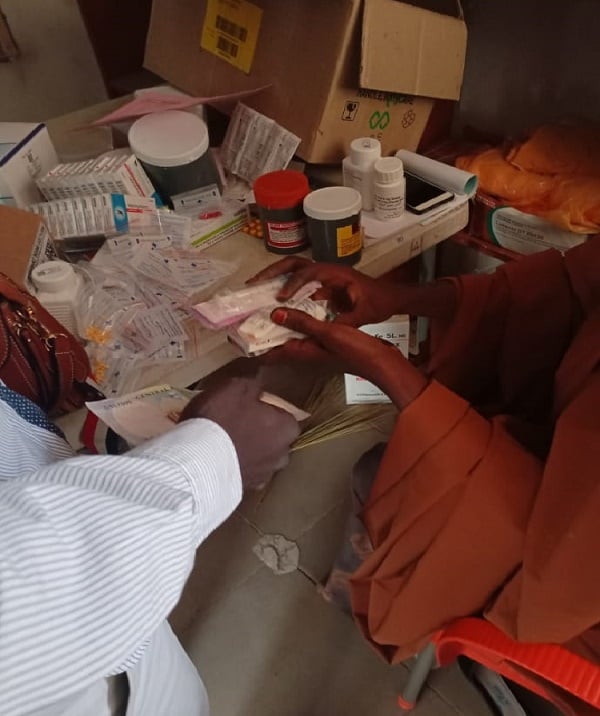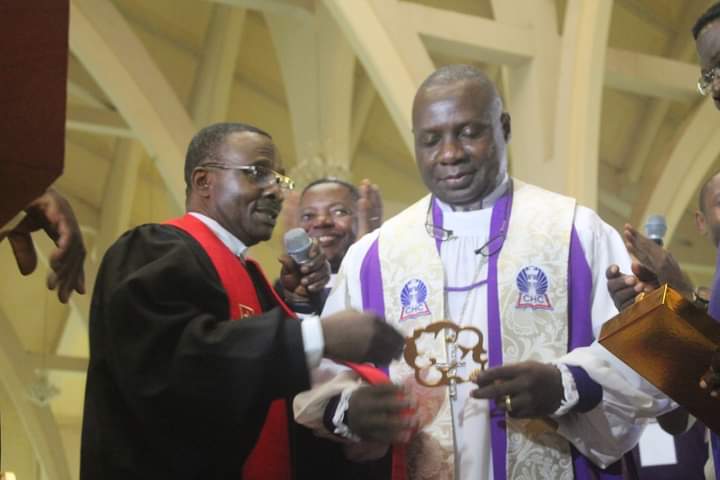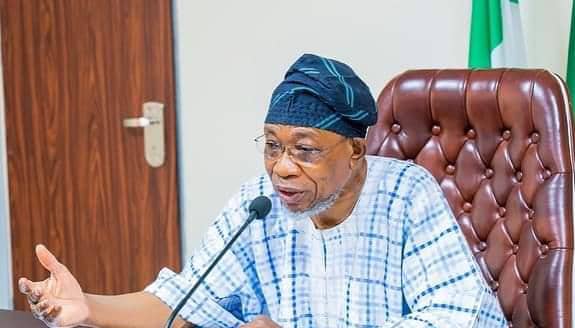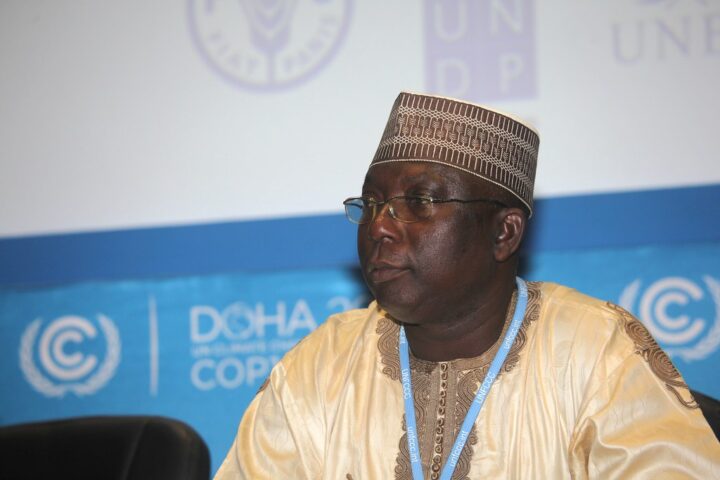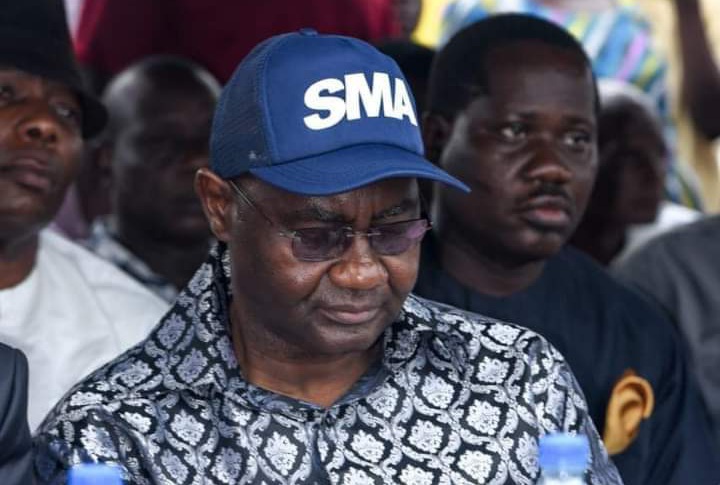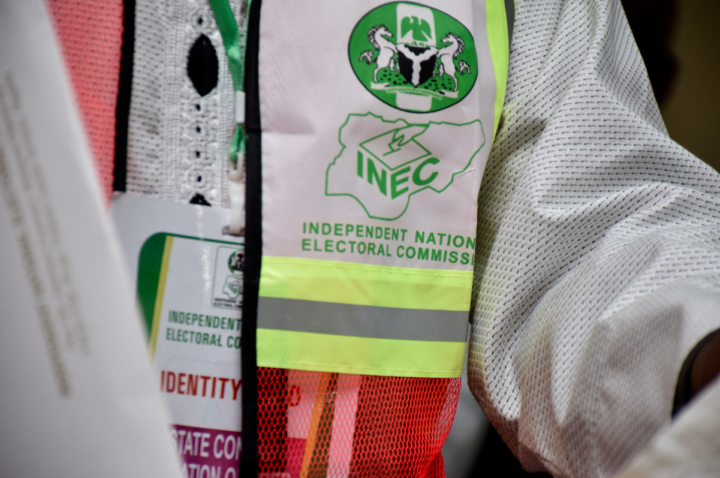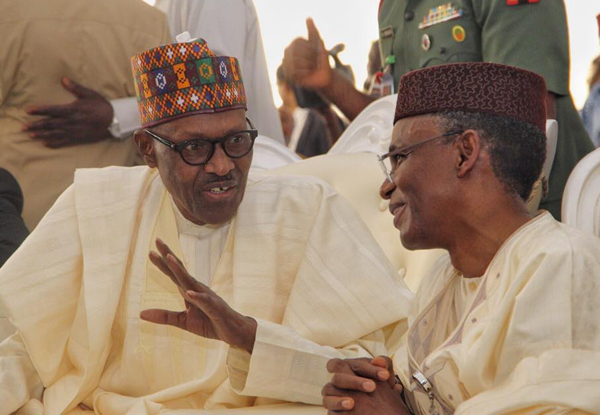An health official, Sadia Bukar collecting money from this reporter for drugs meant to be free.
Nigerians have reacted to the widespread extortion by some officials of Primary Health care Centres (PHCs) who sell anti-malaria drugs to unsuspecting citizens.
This is coming after an investigation published by TheCable revealed how health officials sell free malaria drugs to patients in PHCs located in Kwara, Osun, and Borno states.
In November 2021, Babagana Zulum, Borno governor, had uncovered two PHCs in the state where officials were found to be extorting patients and collecting money for services and drugs that were meant to be free.
Findings showed that this unwholesome practice impedes Nigeria’s fight against malaria.
Advertisement
Nigerians who called in during an anti-corruption radio programme, public conscience, produced by the Progressive Impact Organization for Community Development (PRIMORG), on Wednesday in Abuja, said the extortion is still rife in many other PHCs across the country.
Reacting to the development, Casmir Ifeanyi said the selling of free malaria drugs to unsuspecting patients is being replicated in other states of the federation, and not just in Kwara, Osun, and Borno states.
He said corruption has worsened malaria intervention programmes in Nigeria, hence no value for the huge funds spent to fight the disease.
Advertisement
“Information is key. The point is that most patients who came for these services never knew it was free. So the government has been doling out money, but the people are not aware of all that. They are not also aware of what they are entitled to,” Ifeanyi said.
“Each PHC is located in a community, it’s in a ward; so what we are going to do is set up the aboriginal people there who will be the board members of that small PHC in the community. They help you look into the day-to-day running of the PHC, and that way, the federal ministry of health, the NPHCDA can get real-time feedback. It becomes more interactive, and the people take ownership of these interventions.”
Ifeanyi added that Nigeria must entrench processes, review systems and interrogate disparities in the health sector.
Samad Uthman, an investigative multimedia journalist with TheCable, said the swindling of patients at PHCs continues to gain ground in communities owing to a lack of information and low exposure of the rural dwellers.
Advertisement
Uthman said closing the information gap between the government and the people will go a long way in helping citizens withstand extortion at PHCs nationwide.
He said in some PHCs in Borno state, patients pay between N500 to N1,500 for free antimalarial drugs; in some PHCs in Osun, citizens are charged between N1,000 to N1,500; while in Kwara, unsuspecting patients part with N2,000 to N2,500.
The federal government had secured a $364 million credit facility from three multilateral banks; the World Bank, African Development Bank and Islamic Development Bank to fund health sector interventions in malaria in 13 states for five years (2020–2024).
Advertisement
